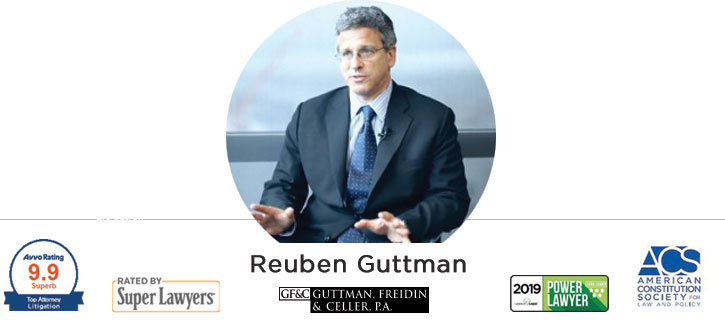Falsely Claiming Power of Attorney

Falsely claiming power of attorney is a serious offense. It occurs when someone claims to be legally authorized to make decisions on behalf of another person or entity, such as signing documents and contracts, without actually having the legal authority to do so. This can lead to financial losses for the represented party and potential criminal charges for the perpetrator.
Depending on the jurisdiction in which it occurred, falsely claiming power of attorney may be considered fraud or a breach of trust by one’s fiduciary duty. In some cases, it could also result in civil penalties being imposed upon those responsible as well as possible jail time.
As such, anyone considering making representations on behalf of another should take care to ensure they are properly authorized before taking any action that involves legally binding commitments.
Falsely claiming power of attorney is a serious offense that can have severe legal consequences. Unfortunately, it’s becoming increasingly common as people attempt to take advantage of vulnerable family members or friends in order to gain access to their finances and other assets.
If you suspect that someone has falsely claimed power of attorney over another person, it’s important to contact an attorney right away so they can help you investigate the situation and protect your loved one from any potential harm.
How Do You Prove Power of Attorney Abuse Texas?
Proving power of attorney abuse in Texas requires a careful examination of the facts and circumstances involved. A power of attorney (POA) is a document that grants authority to another person, known as an agent or attorney-in-fact, to act on behalf of someone else. Abuse occurs when the agent exercises their authority for purposes outside the scope of those granted by the principal in the POA document.
In order to prove such abuse has occurred in Texas, one must be able to show proof that the agent exceeded their powers under the POA and acted contrary to what was expected by its creator or intended beneficiary. This may include evidence such as financial records showing unauthorized transactions; third-party witness testimony about suspicious activities; copies of emails or letters detailing promises made by agents that were not fulfilled; or other documents supporting claims against agents who have overstepped their bounds with respect to use of funds or assets belonging to principals.
Additionally, it may also be necessary for victims seeking compensation from abusers through civil court proceedings in Texas state courts—where most POAs are governed—to provide documentation proving how they were harmed financially due to wrongful actions taken by their attorneys-in-fact while acting on behalf of them in accordance with legal instruments like powers of attorney agreements.
How Do You Write a Check for Power of Attorney?
When writing a check for power of attorney, it is important to carefully consider the effects of this decision before proceeding. A check written with power of attorney can be used to pay bills on behalf of another person or entity. This means that if you write such a check, you are legally authorizing someone else to spend and manage your money in accordance with the terms of the agreement.
To ensure that everything goes smoothly when writing such a check, make sure that both parties involved have signed and agreed upon all relevant documents before signing the check itself. Additionally, provide clear instructions on how funds should be used, who has access to them and any other stipulations that may apply.
Finally, double-check all information for accuracy before mailing off the payment as mistakes cannot easily be rectified afterwards.
What are the Responsibilities of Power of Attorney in Texas?
In Texas, the power of attorney (POA) is a legal document that grants someone else the authority to act on your behalf. The person designated as POA is referred to as an agent or attorney-in-fact. It’s important for anyone considering granting power of attorney in Texas to understand their responsibilities under state law.
In general, the duties and obligations of a POA include managing financial affairs, making decisions about medical care and other important matters, representing you in court proceedings, signing documents related to your estate planning needs and providing any additional actions allowed by the terms of your POA agreement.
Additionally, they are responsible for abiding by all applicable laws while carrying out their duties on your behalf such as notifying creditors when debts have been paid off or filing annual tax reports with relevant authorities. Lastly, a POA must keep accurate records regarding all transactions made through their agency so that you can review them at any time if needed.
What is Power of Attorney in Iowa?
Power of attorney in Iowa is a legal document that gives another person the power to act on your behalf. It allows an appointed agent, also known as an “attorney-in-fact” or “agent”, to make decisions for you when you are not able to do so yourself due to illness, disability, or other incapacitation.
The powers granted by Power of Attorney in Iowa can include: making financial transactions such as banking and investing; managing real estate owned by the principal; signing legal documents such as tax returns or contracts; making medical decisions if one becomes unable to communicate their wishes directly; and more.
In order for a Power of Attorney document in Iowa to be valid it must be signed by the principal (the person who grants authority) in the presence of two witnesses and a Notary Public. Once established, it remains valid until revoked either through death or incapacity of the principal or through revocation written and signed by both parties involved.
What is the Penalty for Abuse of Power of Attorney
The penalty for abuse of power of attorney can vary from state to state, but generally speaking it is a criminal offense. Depending on the severity and nature of the crime, punishments can range from fines and/or imprisonment. I
n some cases, an individual may also be held civilly liable for damages caused as a result of their misuse or abuse of authority granted through a power of attorney document.
It’s important to understand that if you are found guilty in court for abusing your power as an agent under a Power Of Attorney, you risk losing any privileges associated with the POA and could face serious legal consequences.
What is Considered Misuse of Power of Attorney?
Misuse of Power of Attorney is a serious legal offense; it occurs when someone who has been given the authority to act on behalf of another person, takes advantage of that power for their own personal gain. This could mean using the funds or assets in an unauthorized way, making decisions without consulting the individual they are representing, or engaging in other fraudulent activities. Misuse of Power of Attorney can lead to civil and criminal penalties, depending on the severity and scope of damage caused by such actions.
How to Spot a Fake Power of Attorney
If you have been asked to accept a Power of Attorney (POA) from someone, it is important to make sure that it is legitimate. Fake POAs are often used for fraudulent purposes and can lead to serious legal issues. To ensure your safety, look for the following signs when evaluating a POA: check if the document has been notarized; verify that all signatures match those on official government-issued IDs; examine the text for errors or inconsistencies; verify contact information with the signer; and ensure that the person signing was legally authorized to do so.
Sibling Abusing Power of Attorney
Sibling abuse of power of attorney is a growing problem in the US, where one sibling may take advantage of their authority over another’s estate or finances. It can involve anything from denying access to funds or financial accounts to making unauthorized investments, selling property without permission, and more. In order for this not to happen it is important that family members communicate openly about the roles and responsibilities associated with any granted power of attorney.
Additionally, if an individual suspects someone has misused their power of attorney, they should contact legal professionals who can help protect their rights.
Conclusion
In conclusion, it is important to note that falsely claiming power of attorney can have serious legal and financial repercussions for the individual involved. It is vital to do research on what a power of attorney entails before attempting to take advantage of such a position. Furthermore, any attempt to deceive or manipulate another person’s finances should be reported immediately.
By understanding the responsibilities associated with being granted power of attorney and adhering strictly to laws surrounding this document, individuals can ensure their actions are ethical and lawful.



